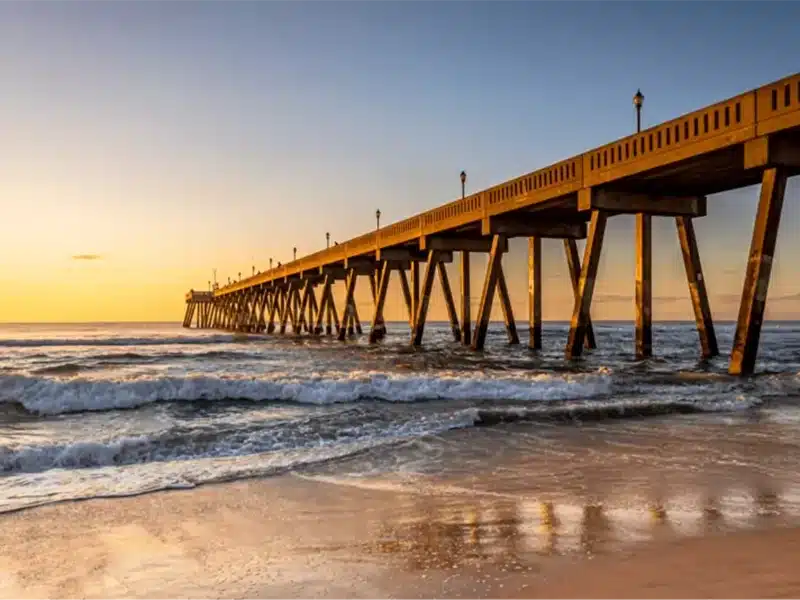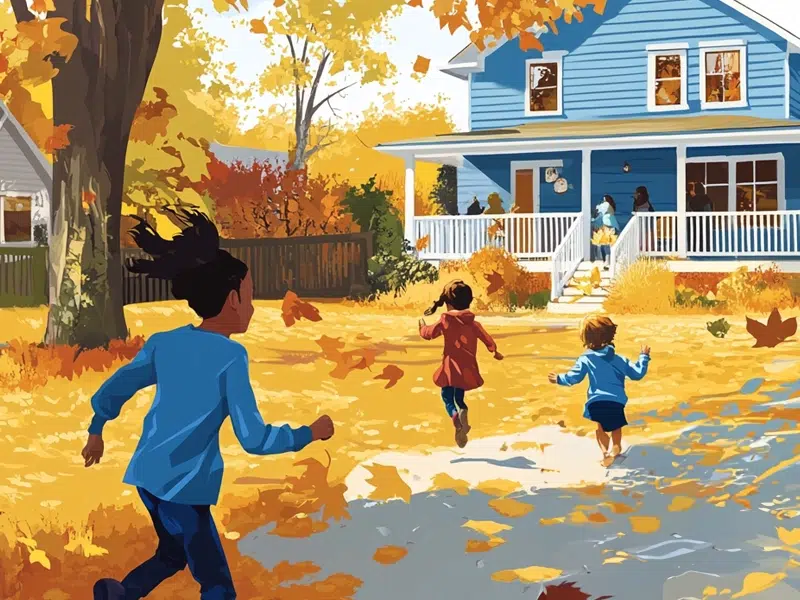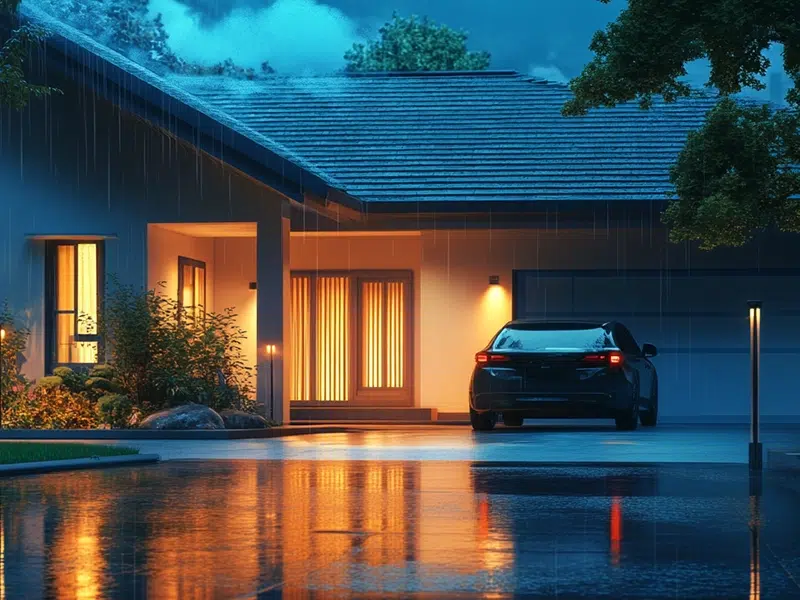Airbnb Laws and Regulations Require Expansion in North Carolina as Tourism Continues to Increase
In North Carolina, short-term rentals are increasingly popular across the state, from beach destinations like the Outer Banks to mountain getaways near Asheville. This growth has brought about ongoing discussions around regulations, with local governments seeking ways to balance tourism benefits with neighborhood and community concerns.
North Carolina’s short-term rental regulations vary by city, with some municipalities enacting ordinances around occupancy limits, noise restrictions, insurance regulations, and licensing requirements. Staying informed on these evolving rules is crucial for hosts who want to maintain compliance and avoid potential fines.
If you’re a host in North Carolina, verifying that your insurance meets local requirements is only one step in protecting your property. Secure your short-term rental business with the strength of the nation’s most trusted short-term rental insurance provider, Proper Insurance.
Schedule a quick 15-minute review to verify that your insurance coverage aligns with the unique risks of your North Carolina short-term rental.

Asheville, North Carolina
Permits Short-Term Rentals in Resort Zoning Districts Only
The city of Asheville has banned short-term rentals aside from properties that reside in resort zoning districts. Although this ban has been placed on short-term Airbnb rentals (a property rented out for less than 30 days), they do allow homestays with various regulations. The regulations include:
- You live in a residentially zoned area
- You live in the house or apartment (“dwelling unit”) full-time;
- You propose to rent one to two bedrooms
- You propose to rent out these bedrooms for less than 30 days at a time.
Although STR’s are still partially banned in Asheville, there has been movement in 2021 to pass House Bill 911, which would do away with bans on short-term rentals within the city. Updates to the current Airbnb laws and regulations from House Bill 911 state:
- In no event may a local government do any of the following: (i) adopt or enforce any ordinance that would require any owner or manager of rental property to obtain any permit or permission under Article 11 or Article 12 of this Chapter from the local government to lease or rent a residential real property or to register the rental property with the local government, except for those individual properties that have more than four verified violations in a rolling 12-month period or two or more verified violations in a rolling 30-day period, or upon the property being identified within the top ten percent (10%) of properties with crime or disorder problems as set forth in a local ordinance
Although proposed in 2021, there is currently no new action being taken to pass the bill.
Greensboro, North Carolina
Enforces New Laws and Regulations
As of April 1, 2024, new laws and regulations have been implemented and hosts must fill out the new application to operate in the city. Please visit The City of Greensboro’s website to stay updated with their current laws and regulations.
The current regulations are in place:
- Permit: Hosts must obtain a zoning permit and display it on the listing as well as the unit.
- Zoning: Rentals are only allowed in residential dwelling units and must be separated by at least 750 feet.
- Occupancy: Two adults maximum per rented bedroom.
- Events: No publicly or promoted events greater than two times the number of people allowed at the STR.
- Parking: One car per bedroom allowed.
Raleigh, North Carolina
Short-Term Rental Hosts Rejoice at New Changes to Outdated Airbnb Laws and Regulations
The new year brought a big change to North Carolina’s capital city. Previously, short-term rentals were considered illegal businesses, but that all changed following a 7-to-1 vote to implement new short-term rental and Airbnb laws.
It appears the city is gradually adopting regulations from their previous total ban starting with special permits. The following short-term rental and Airbnb laws went into effect on March 4, 2021:
- Every short-term rental operator shall first apply for and procure a zoning permit from the City. Zoning permits must be renewed annually.
- In residential zoning districts, short-term renters shall not utilize the premises for holding special events or gatherings.
- Short-term rental operators shall comply with all applicable state and local laws, including those relating to fire and building codes, smoke-detecting and carbon monoxide-detecting equipment, housing codes, and payment of taxes to appropriate governmental entities, including occupancy taxes.
- Every short-term rental operator shall maintain for a period of three years a list of all short-term rental lodgers on the premises.
- The zoning permit number authorizing the short-term rental shall be conspicuously posted on all advertisements for short-term rentals, and the subject property.
Southport, North Carolina
Updates Airbnb Laws and Regulations for Homestays and Short-Term Rentals
With the rise of vacation rentals, the City of Southport Board of Alderman approved a new ordinance on July 1st, changing short-term Airbnb rental laws after months of debating among residents. Southport has estimated that there are more than 100 homes acting as vacation rentals and neighbors are concerned about rowdy groups renting these homes in residential areas. Southport is one of the many cities to re-evaluate its short-term rental regulations due to the increase in popularity of these rentals. The city also makes a distinction between homestays and short-term rentals, which are listed below.
Homestays
Where permitted, the following shall apply:
- Is a full-time resident of the property.
- No activities other than lodging shall be provided. Special events, including weddings, receptions, and other large gatherings, are expressly prohibited.
- The homestay owner or operator shall maintain a minimum of $500,000 general liability insurance on the property, which covers homestay use and homestay guests.
- The homestay owner or operator must pay applicable taxes, including occupancy and sales taxes, to the appropriate governmental entities.
- The homestay owner or operator shall not prepare food for guests or provide pre-packaged or unpacked food items or beverages for guests.
- The homestay area of the dwelling shall comply with all current and applicable building codes.
Short-Term Vacation Rentals
Where permitted, the following shall apply:
- No activities other than lodging shall be provided. Special events, including weddings, receptions, and other large gatherings, are expressly prohibited.
- The length of the stay of guests shall be less than 30 days.
- The short-term vacation rental owner or operator shall maintain a minimum of $1,000,000 of general liability insurance on the property, covering short-term vacation rental usage and guests.
- The short-term vacation rental owner or operator must pay any applicable taxes, including occupancy and sales taxes, to appropriate governmental entities.
- The short-term vacation rental shall comply with all current and applicable building codes.
- A short-term vacation rental zoning permit is required pursuant to 2.6 (I). It shall be a violation of the City’s Unified Development Ordinance to operate a short-term vacation rental without having secured a valid short-term vacation rental zoning permit.
South Port also requires short-term rental hosts and operators to maintain a minimum of $1,000,000 of general liability insurance on the property, covering short-term vacation rental use and guests.
Short-Term Rental Airbnb Laws- Insurance Requirements
The primary reason for an insurance requirement is to ensure that short-term rental owners are properly protected from injuries or property damage.
Commercial general liability is found in business insurance policies and protects the insured against claims of bodily injury or property damage they could be found legally liable. It is the most comprehensive liability insurance one can purchase for short-term rentals.
Additionally, when defining the “proof” of insurance, cities or counties can easily require a “certificate of insurance,” which is a standardized form to show proof of insurance to various interested parties, including banks, mortgage lenders, or, in this case, cities or counties requiring owners to provide proof of insurance to obtain a short-term rental certificate.
Wilmington, North Carolina
Requires a $500,000 Liability Insurance Policy
Wilmington, NC, currently enforces short-term Airbnb laws and regulations for both whole-house rentals and “homestays,” (i.e., renting individual bedrooms). The City requires hosts to adhere to the following restrictions and requirements, including proof of $500,000 or greater in commercial general liability insurance. According to Sec. 18-331.11 of the ordinance, “Property owners registering a whole-house lodging are responsible for keeping in full force and effect during all times the unit is used as a whole-house lodging commercial general liability insurance with a total limit of no less than $500,000 each occurrence for bodily injury and property damage.”
Wilmington has also recently updated the Airbnb laws and regulations regarding registration. The new update states:
- Due to a recent court decision, the City of Wilmington will no longer require registration for short-term rentals or enforce the cap and separation requirements in its short-term lodging ordinance. All other provisions of the ordinance remain in effect.
Previous short-term rental requirements that remain the same include:
- Rentals must be registered with the city annually ($300).
- Each unit must have a flyer listing the host’s contact information, the non-emergency police number, trash collection information, and the maximum number of guests.
- The rental registration number must be displayed on the flyer and in any advertisements.
- No parties, weddings, or other large gatherings are allowed as part of the rental’s operation.
- No food preparation for guests allowed.
You can find the complete ordinance for homestay (individual rooms) and whole-house rentals on the Wilmington government website.
Verify Your Short-Term Vacation Rental Insurance
Proper Insurance is the nation’s leading short-term vacation rental insurance provider, with the most comprehensive policy on the market. We protect homes in all 50 states with unmatched coverage for your property, revenue, and business liability, customized to include guest-caused theft/damage, liquor liability, amenity liability (bikes, kayaks, hot tub, etc.), bed bugs, squatters, and more.
Please note: The information provided is intended as a guide and may not be comprehensive or current. Regulations may change and could vary by area or situation. Always consult local authorities or a legal professional to ensure you have the most accurate information for your short-term rental property.



